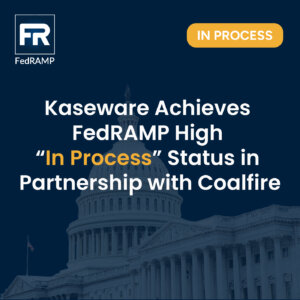
Rethinking RMS: How New Standards and Smarter Systems Are Shaping the Future of Law Enforcement Technology
The Evolution of RMS: A Wake-Up Call for Law Enforcement Agencies
Records Management Systems (RMS) have long been the digital backbone of law enforcement agencies, but a shift is underway. As the volume, sensitivity, and complexity of police data grows, legacy RMS platforms are falling short—especially in areas like integration, compliance, and analytical capabilities.
At the 2025 International Association of Chiefs of Police (IACP) Tech Conference, the session “How Your Records Management Process Can Work for You”, a 5 panel discussion moderated by Todd Thompson of Caliber Public Safety, unpacked the significant updates to the IJIS/IACP RMS Standards, revealing how modern law enforcement agencies must rethink what they expect from their RMS vendors.
But who sets these standards, and why do they matter?
The IJIS Institute—short for the Integrated Justice Information Systems Institute—is a nonprofit that works with justice, public safety, and homeland security stakeholders to improve how data is shared and secured across agencies. In collaboration with IACP, IJIS develops best practices and technical standards for systems like RMS platforms. These guidelines help agencies align with modern expectations for interoperability, compliance, transparency, and efficiency—and are often used to shape RFPs and procurement processes for new technologies.
What’s New in the IJIS/IACP RMS Standards?
The updated RMS standards, now available as Standard IV from the IJIS Institute, reflect a significant leap forward. Rather than narrowly focusing on documentation and case intake, these new guidelines emphasize:
- Mental health interaction tracking
- AI-powered data analysis
- Robust access control and identity management
- Cloud (SaaS) infrastructure readiness
- NIEM standards for interoperability
- Geospatial dashboards and real-time crime mapping
- Digital evidence management
- Role-based administrative controls and auditing
This isn’t just a feature wishlist—it’s a roadmap for how RMS should support the modern policing mission moving forward.
5 Key Considerations When Evaluating a New RMS
With these new standards in place, law enforcement agencies are being urged to take a more strategic, forward-looking approach to RMS procurement. Based on guidance from the IJIS/IACP framework, here are several must-haves to look for:
1. Data Ownership & Portability
Agencies must ensure they retain full ownership and access to their data—especially with cloud-based systems. Understand the terms: Who can access the data? How can you extract it if the contract ends? Is the system auditable and transparent?
2. Interoperability & Information Sharing
An RMS doesn’t operate in isolation. It should seamlessly interface with CAD systems, analytics platforms, digital evidence management tools, and regional/federal intelligence databases. Look for NIEM-compliant platforms that support secure, standards-based data sharing.
3. Access Control & Identity Management
Tiered permissions, federated identity support, and robust auditing aren’t optional—they’re critical. Officers should only access what they’re cleared to view, and the system should log every interaction for accountability.
4. Configurability, Not Custom Code
Choose solutions that allow configuration of fields (e.g., use-of-force or de-escalation metrics) without costly development work. This includes support for reporting mandates like NIBRS, mental health interactions, and property handling.
5. Real-Time Intelligence & Visualization
Modern RMS platforms should offer crime mapping dashboards, shift management tools, and analytical overlays to support intelligence-led policing—not just case intake and reporting.
AI, SaaS, and the Buzzwords Worth Dissecting
Artificial Intelligence (AI) features are proliferating—but they require scrutiny. Agencies should demand transparency: What AI tools are included? Are they being used to auto-generate narratives, tag evidence, or analyze patterns? And most importantly—do they fit your workflows?
Likewise, Software-as-a-Service (SaaS) offers benefits like faster deployment and lower IT overhead. But it’s not ideal for every agency—especially those needing deep customization or strict local control. Ask the hard questions about total cost of ownership, support, and integration fees.
Implementation Matters: Change Management and Training
Even the best RMS system will fail if your agency doesn’t have a solid change management strategy. The session highlighted that “cops hate change”—which means vendors need to bring robust training, implementation support, and an understanding of policing culture. Ask for reference agencies. Talk to peers. Leverage the IACP vendor network.
Kaseware: Built for the Next Era of RMS
Kaseware was built by former FBI Special Agents and technologists to solve these exact problems. As a secure, cloud-native platform, Kaseware offers:
- Full data ownership with export flexibility
- Built-in compliance with NIBRS, CJIS, and NIEM
- AI services for OCR, entity extraction, and automated translation
- Geospatial dashboards and custom visual analytics
- Configurable reporting and forms without coding
- End-to-end digital evidence and chain-of-custody logging
- Secure, role-based information sharing across jurisdictions
Already in use by law enforcement agencies and fusion centers nationwide, Kaseware provides a modern alternative to the fragmented, outdated systems holding many departments back.
RMS Is Not Just a System—It’s a Strategic Asset
The modern RMS isn’t just a digital filing cabinet—it’s a strategic hub for collaboration, compliance, intelligence, and officer safety. With the new IJIS/IACP standards as a guide, now is the time to reevaluate what your RMS is doing for you—and what it could be doing better.
Want to see how Kaseware aligns with the new RMS standards?
Schedule a personalized demo and see how we help agencies modernize operations while maintaining full control of their data.








